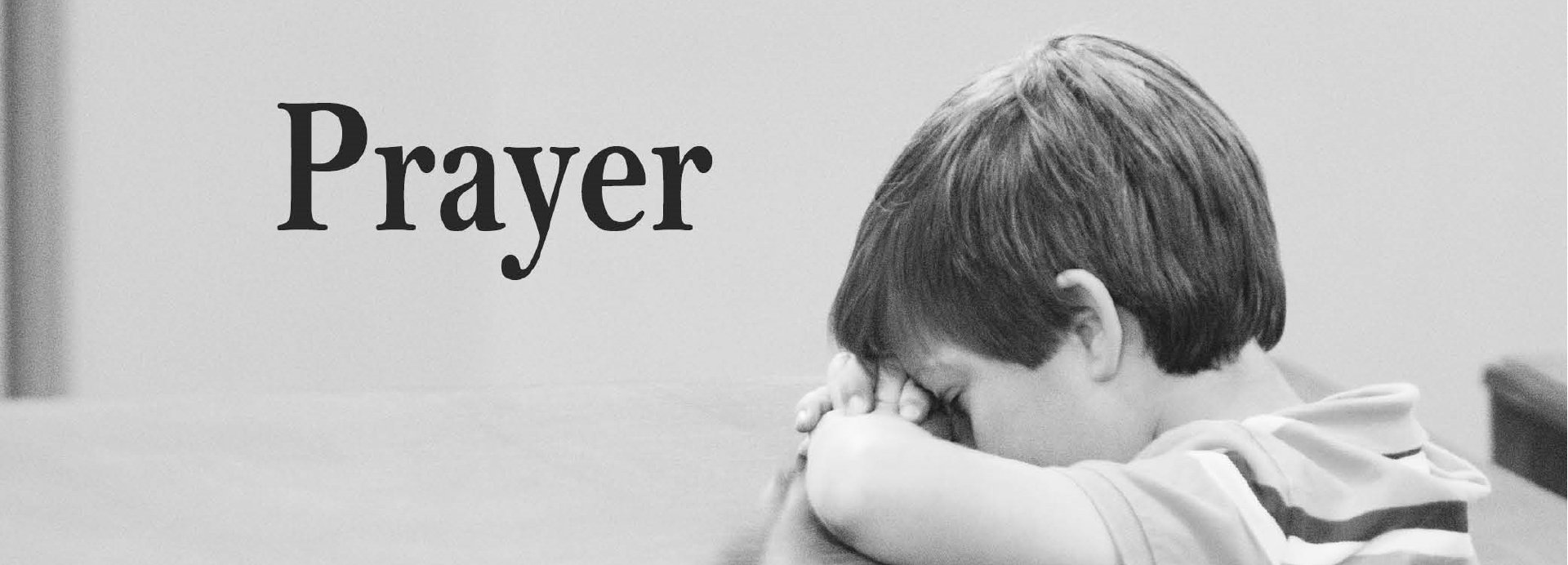Jesus: Your Kingdom Come
Bishop TJ Johnston
RESOURCES
Video:
To view "Ben's Story" please click on the Saint Peter's logo image at the top of this page.
Books:
A Praying Life: Connecting With God In A Distracting World, by Paul E. Miller (2017)
Discussion Guide for A Praying Life: Connecting With God In A Distracting World, by Paul E. Miller (2017)
God on Mute: Engaging the Silence of Unanswered Prayers, by Pete Greig
Essay:
Can We Change God? by Dallas Willard
God's "response" to our prayers is not a charade. He does not pretend that he is answering our prayer when he is only doing what he was going to do anyway. Our requests really do make a difference in what God does or does not do. The idea that everything would happen exactly as it does regardless of whether we pray or not is a specter that haunts the minds of many who sincerely profess belief in God. It makes prayer psychologically impossible, replacing it with dead ritual at best. And of course God does not respond to this. You wouldn't either.
Suppose your children believed that you never did anything differently because they asked you. For example, you will give them money on Friday evening regardless of whether they ask you for it or not. But they also believe that you require them to go through the ritual asking. And so they do it. On Friday evening they approach you and ask you to give them some weekend money. They do it even though they believed that you will or will not give it to them regardless of what they do, and that you know that they believe this. This, unfortunately, is the idea some people have prayer.
Of course this is not the biblical idea of prayer, nor is it the idea of people for whom prayer is a vital part of life. It was two Old Testament scenes that changed my own mind about these matters and permitted me to enter into the teachings of Jesus about prayer. For I too was raised in a theology that presents God as a great unblinking cosmic stare, who must know everything whether he wants to or not, and never in the smallest respect changes his mind about what he is going to do.
The first scene is set in the aftermath of the rebellion of the Israelites that occurred while Moses was on the mountain receiving the tablets with the Ten Commandments for the first time. They had made an idol and worshiped it and, with hearts turned back to Egypt, had indulged in a massive orgy. Now God tells Moses he intends to destroy them all and raise up a new nation from Moses alone (Exodus 32:10).
Moses' response to God in this situation is one of the most instructive passages on prayer and all of the Bible (vv. 12-14). First, notice that Moses reasoned with God, asking him why God should be defeated in his project with the people he had brought out of Egypt. Wasn't God able to complete it? And the Egyptians, Moses also pointed out, would be sure to say that God brought them out of Egypt intending to destroy them in the wilderness. Is that a good God, a great God, they would ask?
And then there is the matter of promises made to Abraham, Isaac, and Jacob. These rebellious people about to be destroyed were their descendents. Certain commitments had been made to them about their descendents. Would destroying these descendents be consistent with those commitments?
Moses boldly asked "Jehovah," the special name for the covenant-making God of Israel, to "change your mind" about harming "Thy" people (v. 12). And the response was, "so Jehovah changed his mind about the harm which he said he would do to his people" (v. 14).
The second Old Testament scene involves one of the really good kings in Judea, Hezekiah. He was a man who had already seen astonishing answers to prayer, especially in his confrontation with Sennacherib, king of Assyria (2 Kings 19:8-37). That is one of those magnificent biblical stories that even capture the artistic imagination. Lord Byron wrote "The Destruction of Sennacherib" to memorialize it in verse.
But now Hezekiah has fallen mortally ill, and his friend Isaiah the prophet comes with a word from God: "You shall die and not live" (20:1). In the face of this declared intent at least to allow death to come, Hezekiah does exactly what Moses did. He "prayed to Jehovah." He "turned his face to the wall," and "weeping bitterly" he reasoned with God on the basis of how he had walked before him in truth and with an undivided heart and had done what is good in his sight (vv. 2-3).
Before Isaiah could get halfway out of the palace, God told them to go back and tell Hezekiah, "I have heard your prayer, I've seen your tears; behold, I will heal you.... And I will add fifteen years to your life" (vv. 4-6). And so, in fact, he did.
Now what we see here is a God who can be prevailed upon by those who faithfully stand before him. We should recall here our earlier discussion of how parents respond to the requests of their children. There is nothing automatic about requests. There is no "silver bullet" in prayer. Request may be granted. Or they may not. Either way, it will be for a good reason. That is how relationships between persons are, or should be.
God is great enough that he can conduct his affairs in this way. His nature, identity, and overarching purposes are no doubt unchanging. But his intentions with regard to many particular matters that concern individual human beings are not. This does not diminish him. Far from it. He would be a lesser God if he could not change his intentions when he thinks it is appropriate. And if he chooses to deal with humanity in such a way that he will occasionally think it appropriate, that is just fine.
From The Divine Conspiracy: Rediscovering Our Hidden Life In God. Copyright © 1998 by Dallas Willard.





